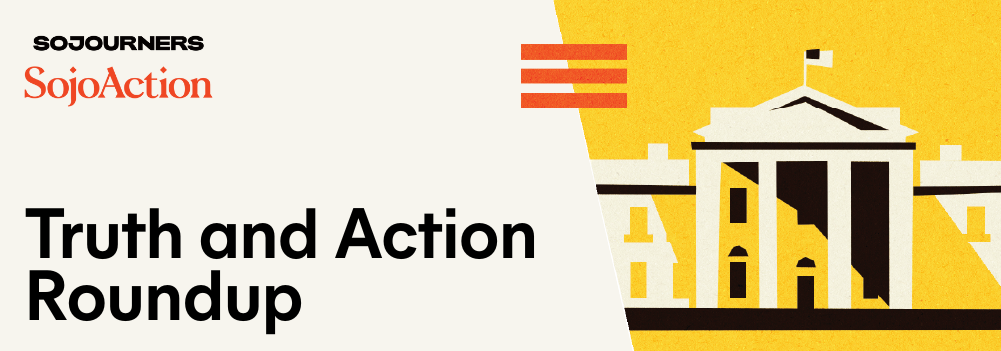Oil wells on LA Archdiocese land plugged after decade-long struggle EarthBeat Weekly
Your weekly newsletter about faith and climate change February 27, 2026
 A community activist holds a sign referencing Pope Francis' encyclical Laudato Si' during a rally Oct. 4, 2017, outside the chancery of the Los Angeles Archdiocese. Residents and allies of the University Park neighborhood were urging the archdiocese to end its lease with AllenCo Energy. (Courtesy of STAND-LA) A community activist holds a sign referencing Pope Francis' encyclical Laudato Si' during a rally Oct. 4, 2017, outside the chancery of the Los Angeles Archdiocese. Residents and allies of the University Park neighborhood were urging the archdiocese to end its lease with AllenCo Energy. (Courtesy of STAND-LA)More than a decade ago, residents in the University Park neighborhood in south Los Angeles began noticing foul smells in the air. Accompanying the odors was a rash of health ailments, among them: extensive nosebleeds, nausea, headaches and extreme asthma attacks. As neighbors started sharing stories, they realized they were not alone. Eventually, they began to look for the source and ultimately discovered an oil production facility in their backyards, behind a 12-foot wall across from an apartment building and down the street from St. Vincent de Paul Catholic Church. The facility was operated by an oil company called AllenCo Energy. The land on which it sat was owned by the Los Angeles Archdiocese. Since that discovery in 2011, a year after the health issues began arising, community activists mounted a dedicated campaign to not only suspend operations at the AllenCo site but to ultimately shut it down and ensure oil drilling would not occur in their neighborhood ever again. That goal was finally achieved in February, when the process to permanently plug and seal all 21 oil wells at the AllenCo site was completed, as I reported Friday for EarthBeat. California Gov. Gavin Newsom announced Feb. 11 the formal shuttering of oil production at the site, which was done as part of a state effort to clean up orphaned oil and gas wells, with partial funding from the Biden administration's bipartisan infrastructure law. Esperanza Community Housing, a community development nonprofit originally founded by a Catholic sister that led the People Not Pozos campaign that mounted the push to shut down the AllenCo site, celebrated the finality of oil drilling at the facility. "This is a reflection of people power and a step towards repairing the harm imposed on our communities," it said in a statement. "The plugging of these 21 abandoned oil wells turns the page on decades of neglect and stalling tactics by this company," Wade Crowfoot, secretary of the California Natural Resources Agency, said in a statement. "Thanks to the community's hard work and perseverance, this neighborhood can finally start a new chapter free of toxic pollution." The Los Angeles Archdiocese has owned the land where AllenCo Energy was drilling for oil since the 1950s, when the family of Edward Doheny, one of the city's early oil barons and a prominent Catholic philanthropist, donated the valuable parcel to the local church. The AllenCo site, along with a second drilling facility known as the Murphy site, served as regular revenue streams for the archdiocese for decades. While no drilling has occurred at the AllenCo site since the oil company voluntarily halted operations in 2013, the Murphy site, which also sits within a residential neighborhood, continues pumping for oil, with 28 of its 34 wells active. The archdiocese has maintained it has no direct control or oversight of the oil production facilities on the land it owns nor the ability to terminate the leases. In a statement to EarthBeat, the archdiocese said it is "pleased" that the oil wells at the University Park drilling site have been successfully plugged, adding it "continues its commitment to ensuring that the health and well-being of the surrounding communities are protected and prioritized." Read more: Oil wells on LA Archdiocese land permanently sealed after years of community pressure

What else is new on EarthBeat:by Mitchell T. Rozanski, OSV News "Like the popes and bishops speaking up to protect God's creation, our Catholic faith calls all of us to bring our values to public life, too," Archbishop Mitchell T. Rozanski of St. Louis writes. Read more here » by Nicole Winfield, Gregorio Borgia, Associated Press The bones of St. Francis of Assisi, the patron saint of ecology, went on public display for the first time Sunday, capping an 800-year saga over his bodily remains and confirming the enduring appeal to Christians of venerating a saint's relics. Read more here » by Thomas Reese Since the start of second Trump presidency, the U.S. bishops have repeatedly pushed back on his administration's policies, including on immigration and the environment. Read more here » by Pauline Hovey Could it be that this was what God was asking of me: to take stock in the simple, abundant gifts all around me, delight in them like a child and find myself delighting in the Holy One right in front of me? Read more here » | 
























